Corran ferry: The five-minute crossing that opens up the world
- Published
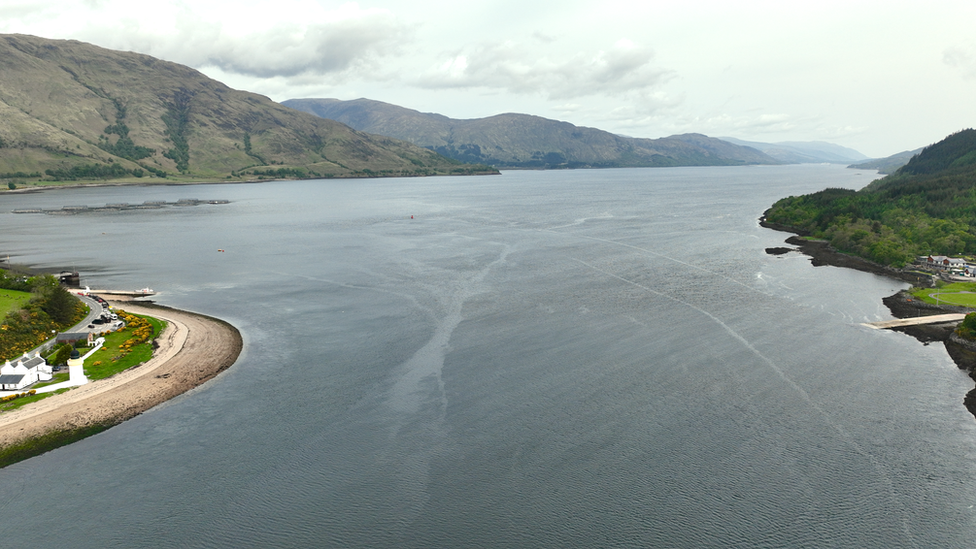
Highland Council's five-minute car ferry service has been suspended for more than a month
The Corran car ferry has been out of action for six weeks, leaving the Highland communities that rely on the five-minute crossing out of pocket and increasingly frustrated.
"I guess from the outside it's really difficult to understand how this 500 metres of a crossing opens the world up to us," says Mary Ann Kennedy.
"Without it we are on a single track dangerous road going all the way round two lochs."
The businesswoman and broadcaster, who lives and works in Ardgour, is among those dependent on the Highland Council-run service.
It has been more than a month since a car ferry has operated on the crossing of Loch Linnhe's Corran Narrows between Corran Ferry and Ardgour.
The main vessel, MV Corran, has so far failed to return from a routine refit while the relief boat, MV Maid of Glencoul, suffered a breakdown at Easter.
There is currently only foot passenger services.
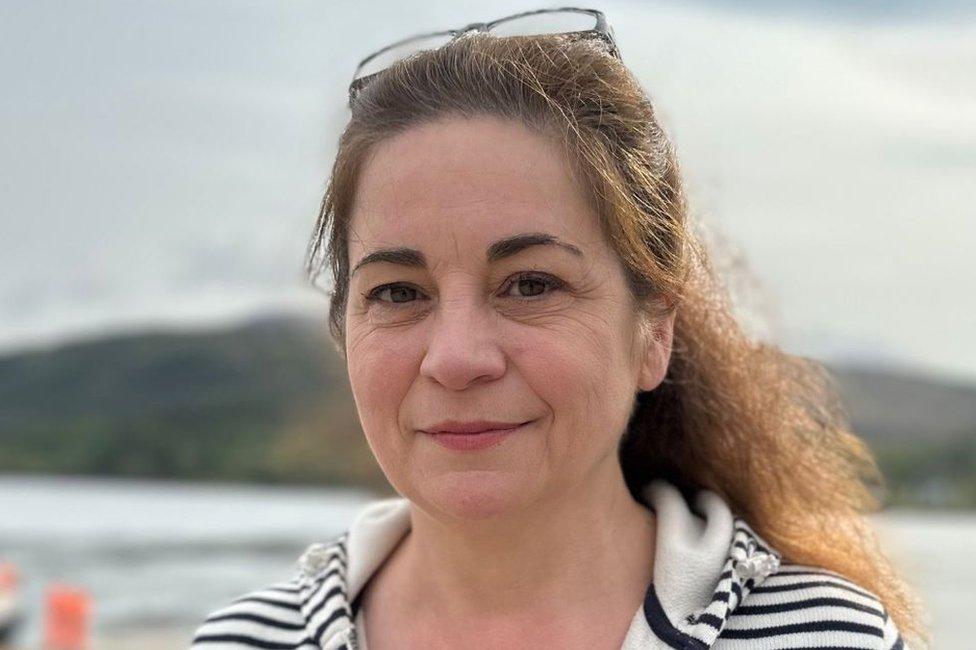
Mary Ann Kennedy says business are suffering
People living in Sunart, Ardnamurchan, Moidart, Morvern and the Isle of Mull also use the ferry to reach Fort William and beyond.
Visitors use it to reach the hills, glens and beaches of the west Highlands. The alternative to the car ferry is a long detour by road.
Mary Ann, a BBC radio presenter and an award-winning Gaelic musician, says: "It puts up to an hour-and-a-half on each journey that we make.
"For basic services like shopping, like hospitals, like travelling for work you have to think about adding three hours on."
Mary Ann accuses Highland Council of lacking emergency planning and says businesses, including those involved in tourism, are suffering because of the longer journey times and reputational damage to the area.
"My own self catering business at the end of June and July is quiet as a mouse. I am very worried," she says.
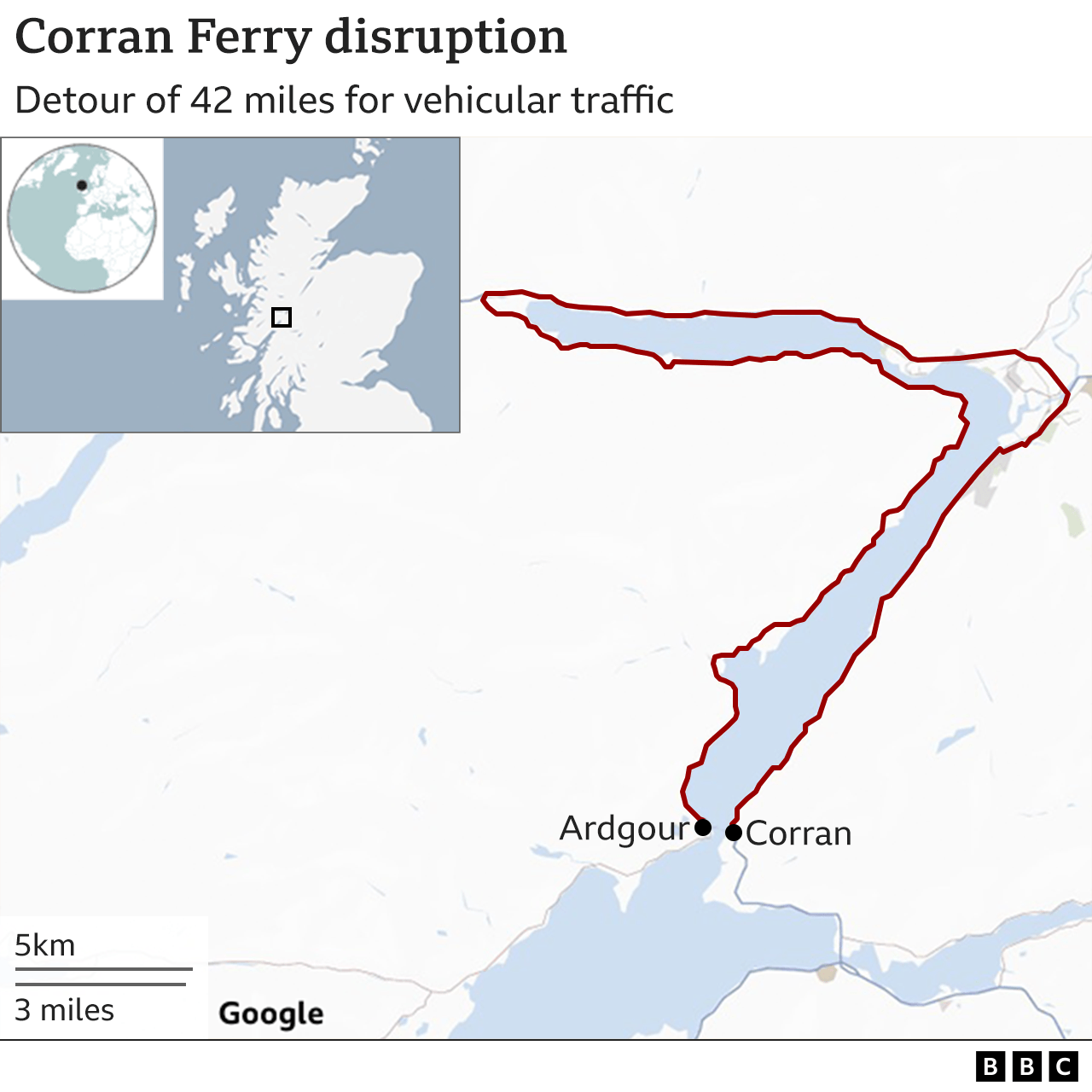

Luke Alexander, who runs The Inn at Ardgour, says the loss of the car ferries resulted in a 50-60% drop in his business.
He says it took two weeks before a relief passenger service to bed in and be fully up and running.
"We are now probably down about somewhere 30-35% of what we would expect at this time of year," says Luke.
"It's not as bad as first feared but still a big hit for a small business like us."
The Inn and other local businesses, including a pop-up café, rely on passing trade.
Luke says: "We need the money from the summer to get us through the winter. It's a hand-to-mouth kind of business in this area."
He believes Highland Council should offer support by reducing rates and other charges.

Luke Alexander says there has been a fall in passing trade
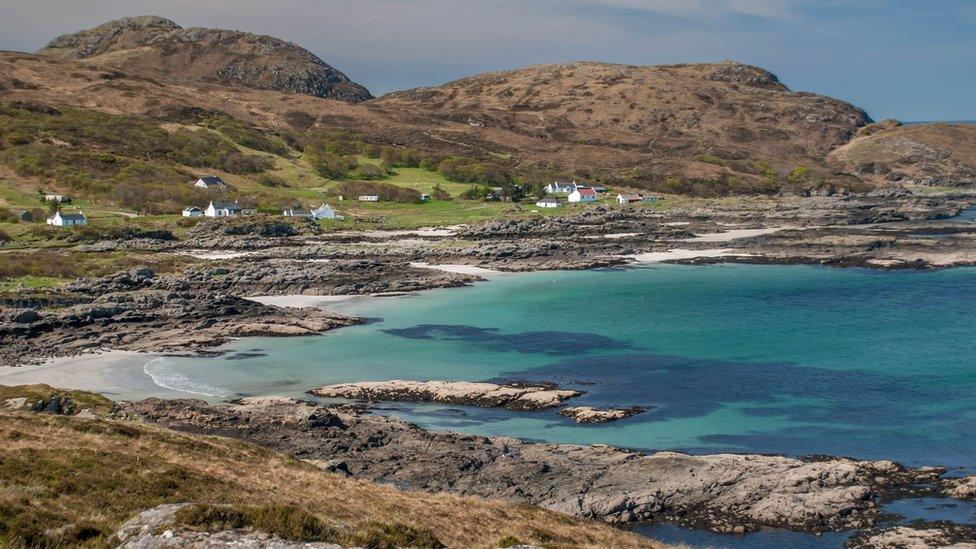
Communities in Ardnmurchan and the wider west Highlands rely on the car ferry service
SNP MP Ian Blackford says a lot of hard work has gone into finding a short-term solution, including an offer of help from the Ministry of Defence.
"Unfortunately, it ran into the same problems with potential local providers and that is the tides at the Corran Narrows are such that we couldn't be in a position to offer a service we would want to," he says.
"So we are really having to wait for the vessels coming back and hopefully that is something that can happen sooner rather than later."
Highland Council says it has sought to ease the situation with additional passenger sailings, providing shuttle bus services and making road improvements.
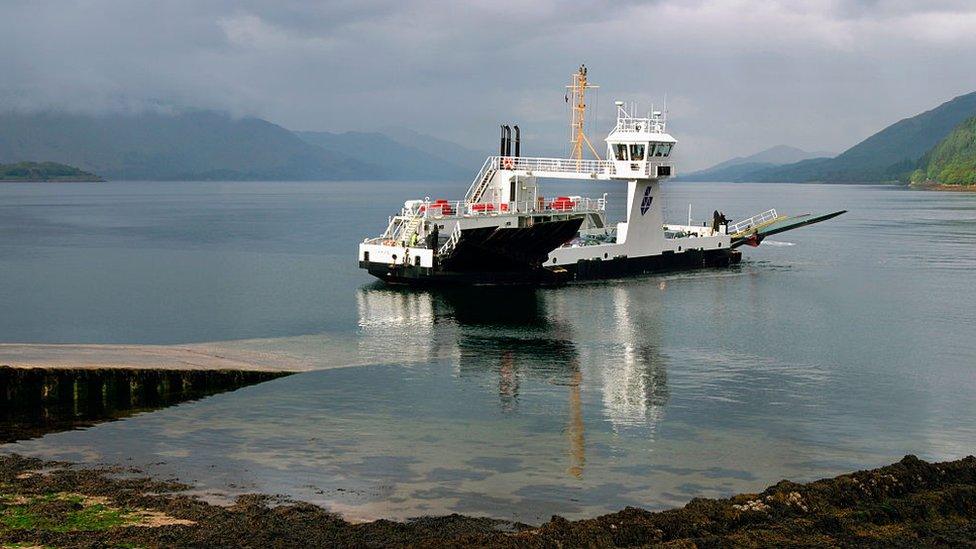
MV Corran could be the first of the route's two boats to be back in service
It says MV Corran is on track to return early next month.
Meantime, debate continues on long-term solutions. They include electric ferries and, possibly in the future, a bridge over the narrows.
But Mary Ann says the scope of the plans should be wider than just transport and could also look at how to draw benefits from the area's challenging waters.
"It is one of the fastest (tidal) races in Britain and the potential for harnessing energy is massive," she says.
"With that comes jobs and family retainment, school retainment, everything that makes a community viable."
Related topics
- Published11 May 2023
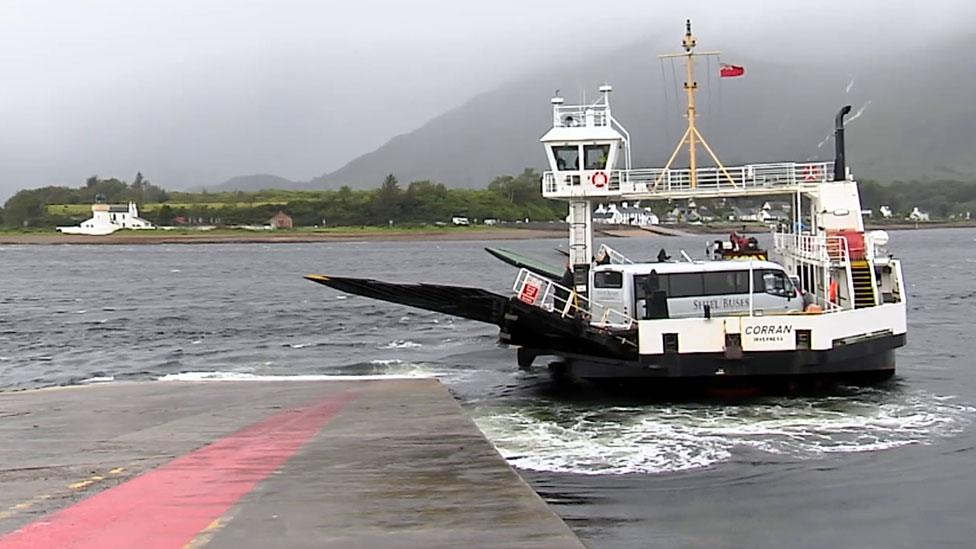
- Published13 April 2023
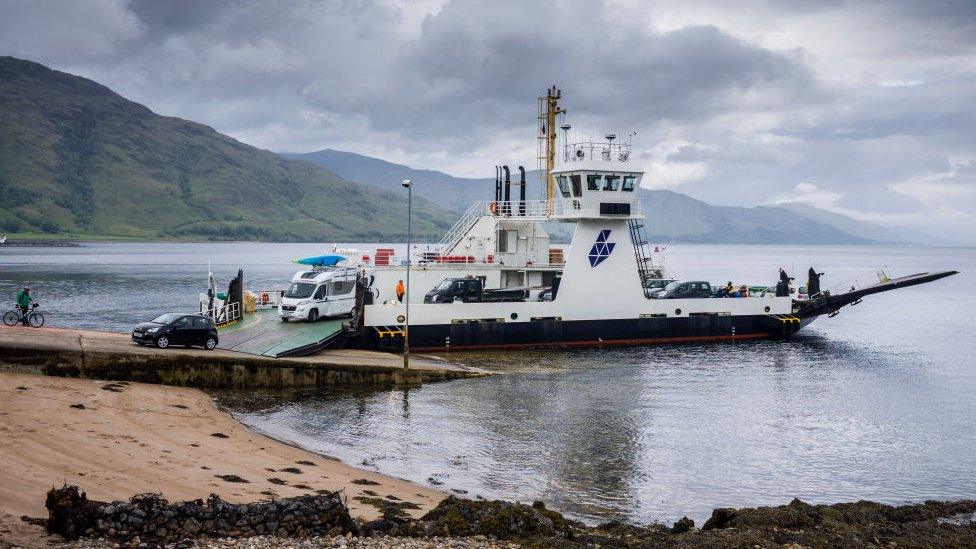
- Published15 April 2023
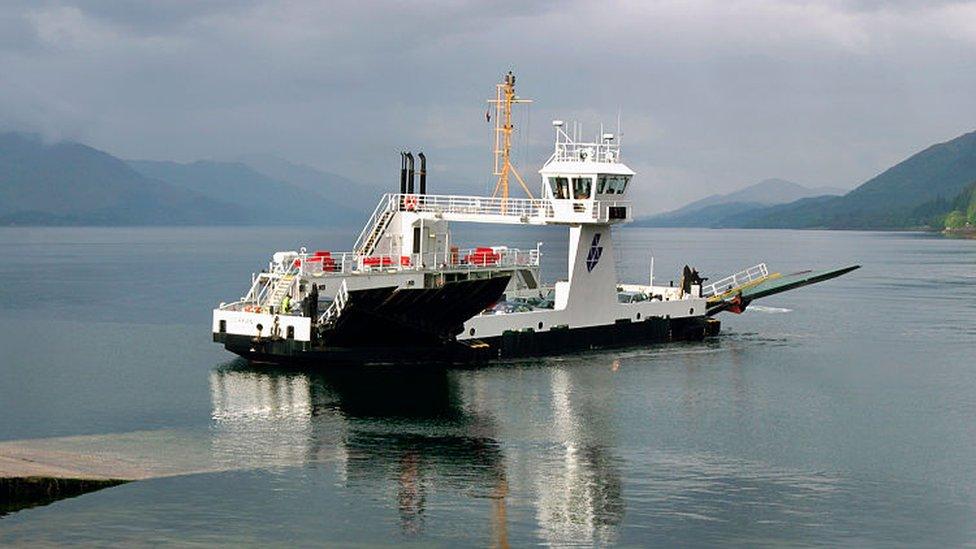
- Published7 February 2023
